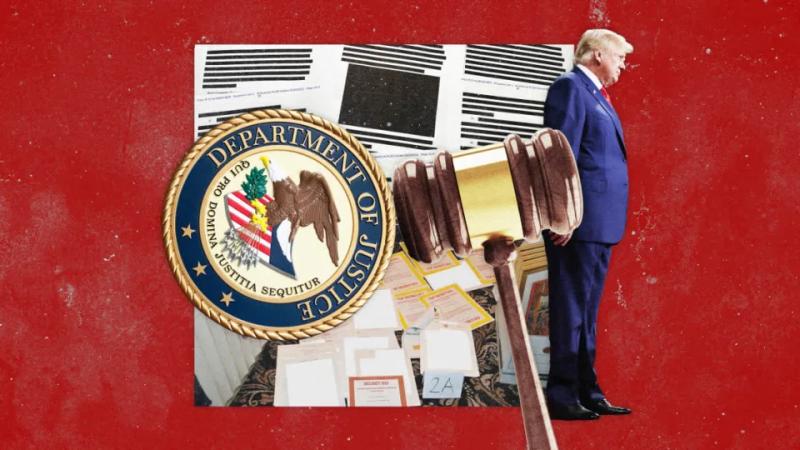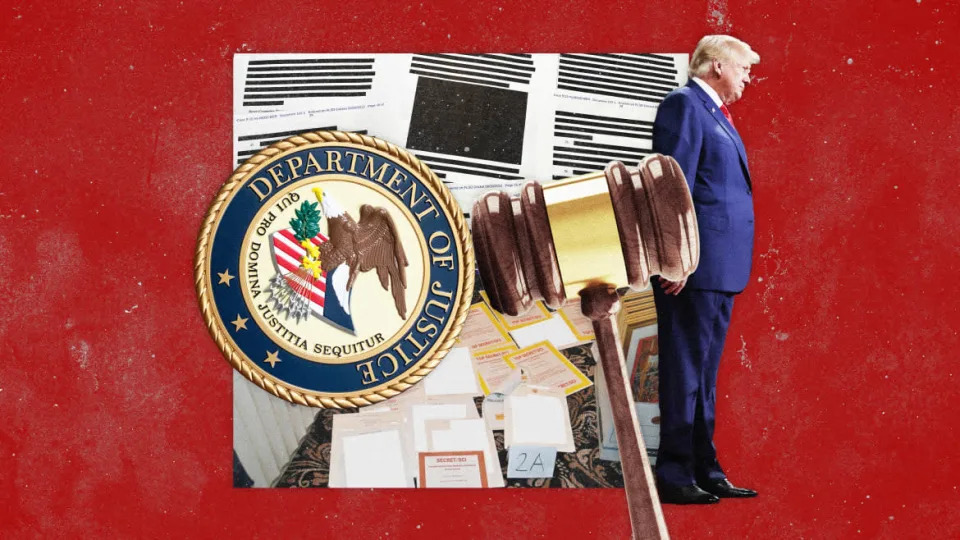The Justice Dept. Just Eviscerated the Trump-Appointed Judge in the Mar-a-Lago Case



Photo Illustration by Thomas Levinson/The Daily Beast/Getty/Reuters
Hidden between the lines of the Justice Department’s filing Thursday of a request for Trump-appointed Judge Aileen Cannon to temporarily stay part of her Trump special master order is the implication that Cannon is accomplishing little besides hurting an investigation that seeks to protect our national security .
The DOJ’s filing not only gives notice that it plans to appeal her decision, but also asks her to enjoin herself by temporarily lifting her ban on the DOJ reviewing and working with the set of just over 100 classified documents that are being kept separately from the rest of the documents seized by the FBI at former President Trump’s Mar-a-Lago resort.
Cannon had stopped the DOJ from reviewing all of the documents but allowed an intelligence assessment of the documents to continue. Although the DOJ notes that it continues to disagree with Cannon barring access to all of the documents pending a special master’s review , its stay request applies only to a review of the classified documents. In laying out the reasons for this narrow ask, the DOJ exposes Cannon’s allowing only an intelligence assessment of the documents to proceed as unworkable and dangerous.
At best, Cannon’s view that an intelligence review can proceed entirely independently of the criminal investigation reflects a naiveté about how national security investigations work. Simply put, the intelligence assessment isn’t just an ivory-tower reading of documents by a bunch of a nerdy analysts working in a SCIF (Sensitive Compartmented Information Facility) but requires working with the documents to answer such crucial questions as who may have accessed the classified documents, who they may have been disseminated to, and where else classified documents might be located.
These answers come only from investigative steps like tracking down and talking to witnesses, reviewing surveillance and other forensic data, and following up on leads that emerge from this process. By banning such steps, Cannon ignores the fact that the FBI is part of the intelligence community that is tasked with assessing the classified documents. Her ban is really a ban on the DOJ and the FBI’s ability to properly protect national security.
In rebutting Cannon’s meritless concern over executive privilege as a justification for this dangerous interference with a criminal investigation into threats to national security, the DOJ starts by pointing out that executive privilege cannot possibly justify denying the Executive Branch from access to and use of its own documents. It reminds Cannon of the Supreme Court’s 1977 ruling in Nixon v. Administrator of General Services , in which the court discussed how anomalous it would be to allow a former president to use executive privilege to stop an investigation “by the very Executive Branch in whose name the privilege is invoked.”
The DOJ also points out that Trump and his legal team never asserted executive privilege over classified documents previously subpoenaed and produced by them but only asserted executive privilege over documents discovered to have been withheld. Think of a bank robber who returns stolen cash stained by an exploding dye-pack but claims more stained money found in his house was not actually stolen.
The DOJ also eviscerates Cannon’s concern over possible injury to Trump by pointing out that Trump has never claimed to have any “property, possessory, or other legal interest in classified records” and that the Supreme Court and other federal courts of appeals have rejected the idea that mere fear of criminal prosecution constitutes irreparable harm.
Most powerfully, the DOJ turns Cannon’s concern over possible injury to Trump against her by pointing out that the real potential irreparable harm arising from this case is not any kind of injury to Trump but rather the risk of irreparable harm to the government and public from delaying the criminal investigation in this case.
In sum, the DOJ makes the case that Cannon’s ordering of a special master accomplishes nothing in the way of protecting real legal rights for Trump or the Executive Branch. The only thing accomplished by Cannon’s ruling is delaying and hurting a potential criminal case against Trump. But maybe that was the point all along.


Which is why the 'Judge's' ruling is so dangerous. The FBI is the domestic investigatory Agency in the IC but the STUPID Judge didn't understand that and enjoined them from participating in the risk assessment.
If the person being interviewed handled documents from BOTH tranches [Jan. 2022 and August 2022] Trump's lawyers can demand that the FBI/DOJ prove that they ONLY addressed the Jan. 2022 docs. Anything the interviewee says about the August tranche would be inadmissible. The FBI does NOT record their interviews.
The Judge's ruling is a giant clusterfuck of sloppy jurisprudence.
I think they just gave the judge an out. So she's out of it, the "investigation" continues and the DOJ/FBI, whether right or wrong, looks irredeemably biased.
All the best with an indictment.
What leads you to believe that Judge Cannon is 'out of it' Vic?
The investigation is NOT continuing.
Our attentive readers are aware that an indictment is on your and DeSantis's wish lists.
OVERRULED!
Opinions from multiple legal scholars and experts have indicated that her delaying tactic was dead wrong. That biased bitch should be charged with obstruction of justice and removed from the bench.